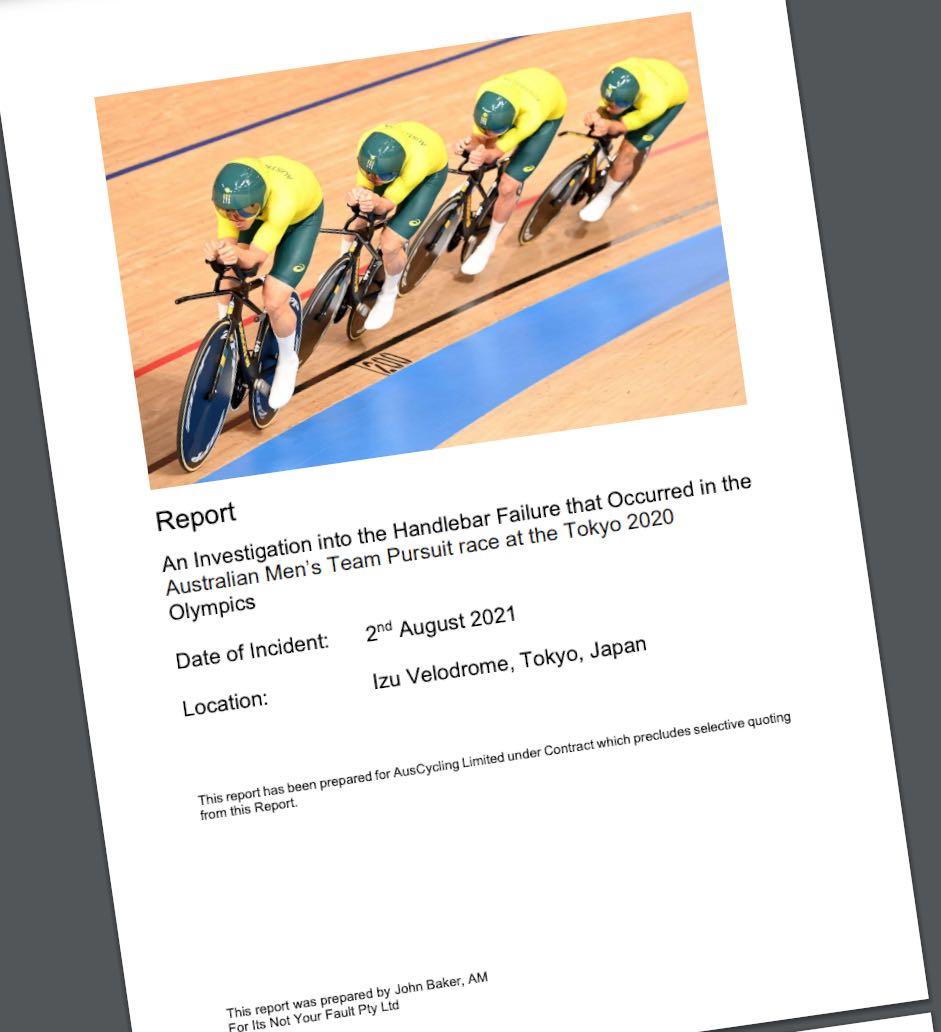- News
- Reviews
- Bikes
- Components
- Bar tape & grips
- Bottom brackets
- Brake & gear cables
- Brake & STI levers
- Brake pads & spares
- Brakes
- Cassettes & freewheels
- Chains
- Chainsets & chainrings
- Derailleurs - front
- Derailleurs - rear
- Forks
- Gear levers & shifters
- Groupsets
- Handlebars & extensions
- Headsets
- Hubs
- Inner tubes
- Pedals
- Quick releases & skewers
- Saddles
- Seatposts
- Stems
- Wheels
- Tyres
- Tubeless valves
- Accessories
- Accessories - misc
- Computer mounts
- Bags
- Bar ends
- Bike bags & cases
- Bottle cages
- Bottles
- Cameras
- Car racks
- Child seats
- Computers
- Glasses
- GPS units
- Helmets
- Lights - front
- Lights - rear
- Lights - sets
- Locks
- Mirrors
- Mudguards
- Racks
- Pumps & CO2 inflators
- Puncture kits
- Reflectives
- Smart watches
- Stands and racks
- Trailers
- Clothing
- Health, fitness and nutrition
- Tools and workshop
- Miscellaneous
- Buyers Guides
- Features
- Forum
- Recommends
- Podcast
TECH NEWS
 2020 Tokyo Olympics broken Australia bike
2020 Tokyo Olympics broken Australia bikeAussie Olympic handlebar failure: inadequate spec and fatigue testing to blame
The snapped handlebar that resulted in Australian rider Alex Porter smashing into the boards of the velodrome at the Tokyo Olympic Games was caused by inadequate design specifications supplied to the manufacturer and a failure to conduct adequate fatigue testing in the lead-up to use in competition, according to a new report.
You might remember that the Aussie men had to take to the start line again in the qualifying round of the team pursuit after the titanium additive manufacture (3D printed) base bar from Bastion Cycles broke.
Read about the snapped handlebar that caused Aussie rider to crash in men’s team pursuit
AusCycling, the national governing body for cycling in Australia, initiated the investigation and says it will introduce a range of measures in response to the findings of the independent report prepared by mechanical and aeronautical engineer John Baker. He found that a range of factors contributed to the failure with two of them critical.
First, the report found that, “The Australian Cycling Team provided an inaccurate specification for the design and manufacture of a replacement pursuit base bar, in particular actual riding forces were some one-and-one-half times those specified.”
Second, the report stated, “The testing standard included in the specification included fatigue strength testing. This requirement was reduced from 200,000 test cycles to 50,000 test cycles by the Australian Cycling Team without justification.”
The report identified the failure of the handlebar as “low cycle fatigue caused by the higher than specified rider forces from an initiation site just forward of the base bar to steering fork front mounting bolt hole”.
The higher riding forces mentioned were found to have been applied repeatedly during the race start meaning the base bar, while designed to brief, was only 65 percent as strong as was required in competition conditions.
The report found that a lack of adequate processes and policies meant that the issues weren’t detected and rectified before the team raced at the Olympic Games.
The report made a total of 14 recommendations covering processes, policies, quality control and more. For example, one recommendation is: “When raising an equipment requirement, test that requirement in every detail with qualified and experienced advice, which can include a trusted supplier, before that requirement is released.”
AusCycling says that it will adopt all of the recommendations.
The report also made five key recommendations for the manufacturers of the base bar, Bastion Cycles. One of these recommendations is: “When supplying components (base bars) for use by customers on their equipment, provide recommended fastener attachment values to match the component’s design and material type.”
Bastion co-founder Ben Schultz said, “It is heartening to know that the quality of our products was not the primary cause of the failure, but we also have work to do to improve our capabilities and knowledge base.
“Bastion is committed to working with AusCycling and the team as we address each of the recommendations and work towards the future.”
Mat has been in cycling media since 1996, on titles including BikeRadar, Total Bike, Total Mountain Bike, What Mountain Bike and Mountain Biking UK, and he has been editor of 220 Triathlon and Cycling Plus. Mat has been road.cc technical editor for over a decade, testing bikes, fettling the latest kit, and trying out the most up-to-the-minute clothing. He has won his category in Ironman UK 70.3 and finished on the podium in both marathons he has run. Mat is a Cambridge graduate who did a post-grad in magazine journalism, and he is a winner of the Cycling Media Award for Specialist Online Writer. Now over 50, he's riding road and gravel bikes most days for fun and fitness rather than training for competitions.

Let me try to elaborate....
Reminds one of Alexei Sayle's gag about "Austerity is the idea that the global financial crash of 2008 was caused by there being too many libraries...
I wonder when a manufacturer is going to figure-out how to make a cycle computer with an edge-to-edge screen like phones have. There's so much...
Do you reckon that one deserves a cry of "Godwin"?
That looks really nasty. And yes, that is where I'd be placing my money....
"But cars!"
I was, of course, talking in a general sense, but if you want to focus back on Armstrong, fine with me....
Is that some new SUV?
None shall be weary nor stumble among them; none shall slumber nor sleep; neither shall the girdle of their loins be loosed, nor the latchet of...
That wouldn't be new, more than twenty years ago my insurers tried to avoid paying out on the theft of my motorcycle on the grounds that I couldn't...